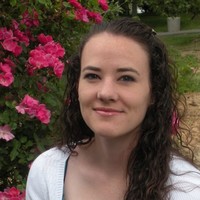
Amanda M. Hulse-Kemp - PI (SY)
PhD - Texas A&M University, Genetics, 2015
amanda.hulse-kemp@usda.gov
I am a computational biologist with the United States Department of Agriculture – Agricultural Research Service in the Genomics and Bioinformatics Research Unit. I have a broad biology background specializing in genetics and then moved into working in the field of agriculture (primarily crop) systems. I have been involved in many collaborative groups developing the highest quality genomes available at thier time for multiple crops which enabled development of additional tools. Once these reference genomes are available we can initiate a broad range of revolutionary technologies. Helping breeding programs integrate the next best technology to speed up the process to identify important genes and make better products for stakeholdres and consumers is a passion.
Setting up a research group that is highly collaborative and interdisciplinary allows us to work on large scale problems across many commodities.
At the USDA ARS I hold a career scientist position as a Computational Biologist in the Genomics and Bioinformatics Research Unit.
Being located in Raleigh, NC; I also have an Adjunct Affiliation in the Departments of Crop and Soil Sciences, Bioinformatics, and Genetics at North Carolina State University.
Research Associates
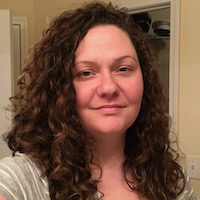
Heather Manching, PhD
PhD - University of Delaware; MS - UNC Wilmington
Heather moved into a Research Associate position in 2023 and is a leading member of the Breeding Insight OnRamp project. She continues to serve as the Citrus Coordinator for Breeding Insight OnRamp. She has a Masters in Biology from The University of North Carolina in Wilmington and a Ph.D. in Plant and Soil Sciences from The University of Delaware. During her doctoral studies, she focused on the problem of maintaining yields despite challenges caused by population growth and climate change by incorporating novel genetic diversity in maize. By evaluating the genomic response to selection for flowering time in a maladapted, tropical population of maize (a potential source of genetic diversity) using approaches she developed for genotyping and assessing haplotype reconstruction in highly heterozygous populations, she contributed to knowledge needed to develop more efficient pre-breeding strategies for maladapted material. She hopes to apply what she has learned in her studies on the genetics in maize, to aid in the improvement of other agricultural commodities. She enjoys spending time with her husband and two sons and reading.
Postdoctoral Associates
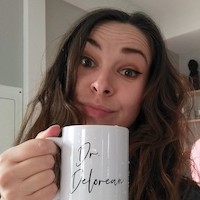
Emily Delorean, PhD
PhD - Kansas State University
Emily is a NSF postdoctoral fellow in Amanda’s lab. In collaboration with William Rutter (USDA-ARS), they are leveraging de novo genome assemblies to study the genetic basis of the root-knot nematode virulence on chili peppers and correspondingly, the genetic resistance of chili peppers against root-knot nematodes. The goal of the work is to help us breed chili pepper varieties with durable genetic resistance to root-knot nematodes. Emily likes teaching, talking about science over beer or cupcakes, and kittens.
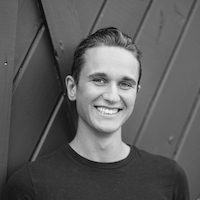
Keo Corak, PhD
PhD, MS - University of Wisconsin, Madison
Keo is a USDA/ORISE postdoctoral fellow with the USDA SCINet scientific computing initiative and is the Sugarcane Coordinator for the Breeding Insight OnRamp project. They hold a Masters in Agroecology and a Ph.D. in Plant Breeding and Plant Genetics from the University of Wisconsin - Madison. Keo studies ways to make genetic resources of highly heterozygous crops, like carrot, more useful and accessible to breeders.
Graduate Students
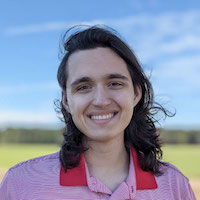
Grant Billings, MS
MS - Clemson University; BS - Michigan State University
Grant is a Bioinformatics Ph.D. student in the Hulse-Kemp Lab from Florence, South Carolina. His research interests are improving the usability of existing genomic resources and making accessible genome-based tools for upland cotton breeders. He hopes to combine his experience in field-based plant breeding, laboratory research, computational analysis, and genetics to assist breeders in their quest to discover better cotton through conventional breeding with a modern twist. In his free time, Grant likes to enjoy live music and experiment with food. Grant is currently supported by a Cotton Incorporated Fellowship.
Jordan James
Jordan is a Ph.D. student at the University of Texas at Arlington on a collaborative project with the Hulse-Kemp lab. His research focuses on incorporating Machine Learning and Artificial Intelligence approaches to solve relevant plant breeding programs utilizing multiple technology gathering data streams.
Jonathan Zirkel
Jonathan is a Genetics and Genomics PhD student Co advised by Dr. Hulse-Kemp and Dr. Doherty. His primary research focus is on identifying and characterizing unknown function genes of agricultural relevance in cotton. He aims to accomplish this with a combination of bioinformatic techniques and molecular approaches.
Laide Rasaki
Laide is a Ph.D. student in the Crop & Soil Sciences Department of North Carolina State University, and member of the 2023-24 class of the Genetics and Genomics Academy. His research is focused on the development and integration of genetic tools and computational methods into plant breeding systems. The ultimate aim of his work is the application of genomics to accelerate crop improvement in response to the ever-changing global climate conditions.
Lab Interns
Mitanshu Reshamwala
Mitanshu is a Master’s Student, majoring in Computer Science at NC State University. My primary fields are Artificial Intelligence and Software Engineering. My 2 current projects at Hulse-Kemp Lab are: 1) Image-based Phenotyping(Fruit-Quality): This project entails extracting phenotypes from images of samples of crops or plants, and 2) Digital Phenotyping: This project aims to help extract phenotypes a breeder collecting data in the field using application like Fieldbook and upload the extracted data to Breedbase.
Prasad Kamath
Prasad is a Masters student in Computer Science at NC State University, and has previously worked in android development and backend web development. He is working at the Hulse-Kemp Lab primarily on Field Book app development, integrating multiple data input sources to reduce manual data entry needs. Apart from this, he has also improved existing functionalities in the Fieldbook app, addressed bugs and issues to enhance the overall user experience.
Akshat Savla
Akshat is a second-year Masters of Computer Science student at NC State University. His primary interests and prior experience are in backend and API development. He began working with the Hulse-Kemp Lab to develop a BrAPI-compliant backend for transferring audio recordings from the Field Book app. He has lately delved into Android development and is working on fixing issues, bugs, and improving existing features of the Field Book app.